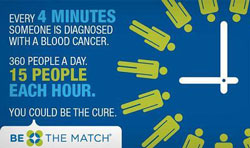M: Did you have enough to eat today? You have to have some food in you for energy.
G: I am not sure, did I eat today? Where are we going?
M: To the gym. What did you yesterday?
G: Let me try to remember.
M: Did you go to the gym this week?
G: Your mom would know. Where are we going again?
M: The gym.
G: Oh that’s right. Yahoo.
As myself, my mother, and my grandpa take the five minute commute from his house to the gym, this has become a daily occurrence. He always remembers his children, but cannot name even half of his grandchildren. He cannot remember what he ate for breakfast. He cannot remember words to his favorite songs. He cannot even remember the date, the month, or the year. He has been diagnosed with Alzheimer’s.
My 84-year-old grandfather is slowly losing control of what he considered his greatest asset: his mind. He is not nearly a needle in the haystack when it comes to Alzheimer’s. A little over five million Americans are currently living with this disease. Not only are people living with the disease, but many are also dying from the disease. Yes, it must seem odd that simply forgetting parts of one’s past can ultimately kill someone, but it is more than that.
The brain as an entity decomposes due to Alzheimer’s which affects the main three parts of a brain: the cerebrum, the cerebellum, and the brain stem. As each part of the brain is affected, a person’s failing condition becomes more obvious. The cerebrum which is often where the disease begins is responsible for body movement, memory, problem solving, thinking skills, and feeling. The cerebellum is responsible for a body’s balance and coordination. The final part, the brain stem, controls breathing, heart rate, blood pressure and digestion. Once this is affected, a human is in their final stages of their life.
As the car ride ensues, the conversation continues as followed.
M: Boy, this used to be all fields. There was only Weitzel’s farm. Have I talked to him recently?
G: I don’t think so, do you want to give him a call?
M: Maybe later. Can you turn this music off?
G: Ok.
M: I remember when I saw Frank Sinatra with mom and dad. He was only a teenager at the time but he could really sing.
My grandfather has lived through the Great Depression, has been an active in the army, owned his own financial advisement company, is still the youngest president of Volkswagen, the former owner of Subaru of America, and is a certified genius. All this he can remember, however, he cannot recall a simple bread of toast in the morning.
That is the strangest part of my observation; Alzheimer’s rips apart your current memory to make you feel crazy, yet leaves your far distanced memories to justify the fact you are not insane.
It is reported that one in every three seniors die from Alzheimer’s or a form of dementia and the numbers have only been rising. Alzheimer’s is the sixth leading cause of death in America. From 2000 to 2010, deaths caused by this disease have increased by 68 percent. It is predicated that by 2050, deaths caused by Alzherimer’s will nearly triple to 16 million people a year.
I try to stress to my siblings that we cannot become aggravated with him, but they do not have as much compassion as I do. Thankfully, my father had a first hand experience with Alzheimer’s since his mother had it. His mother would often make up tales such as my dad’s brother came to visit, however, my dad is an only child. The only time I ever saw my father cry in my 21 years of life was when we went to see a play in Philadelphia which focused on an old man suffering from Alzheimer’s. It’s sad to think only three years ago, my grandpa was as sharp as a rock and now he has turned into the old man from the play.
Those who are elderly and suffer from Alzheimer’s know they are losing their spark. Those who are younger have to try as hard as they can to help them keep that spark alive.



